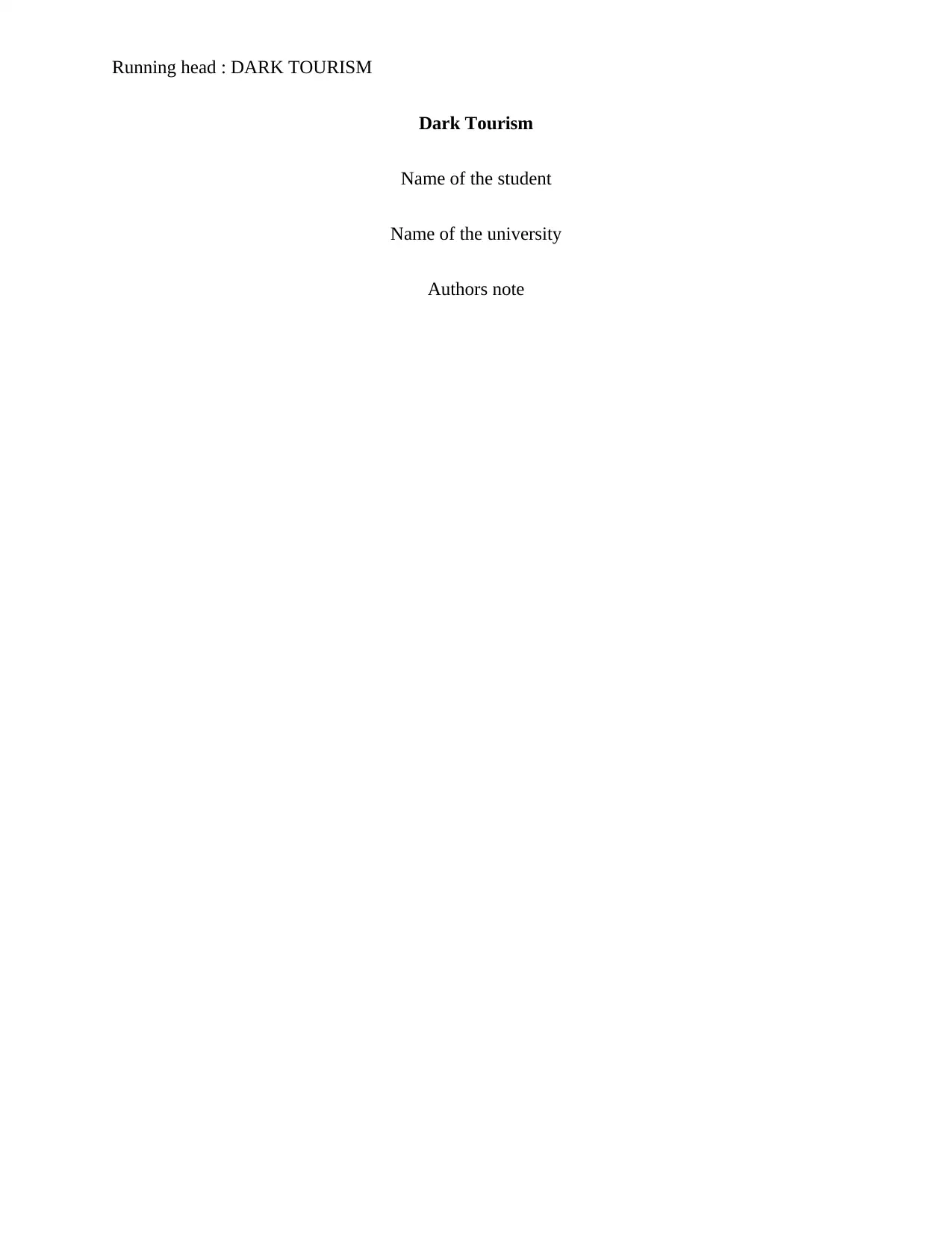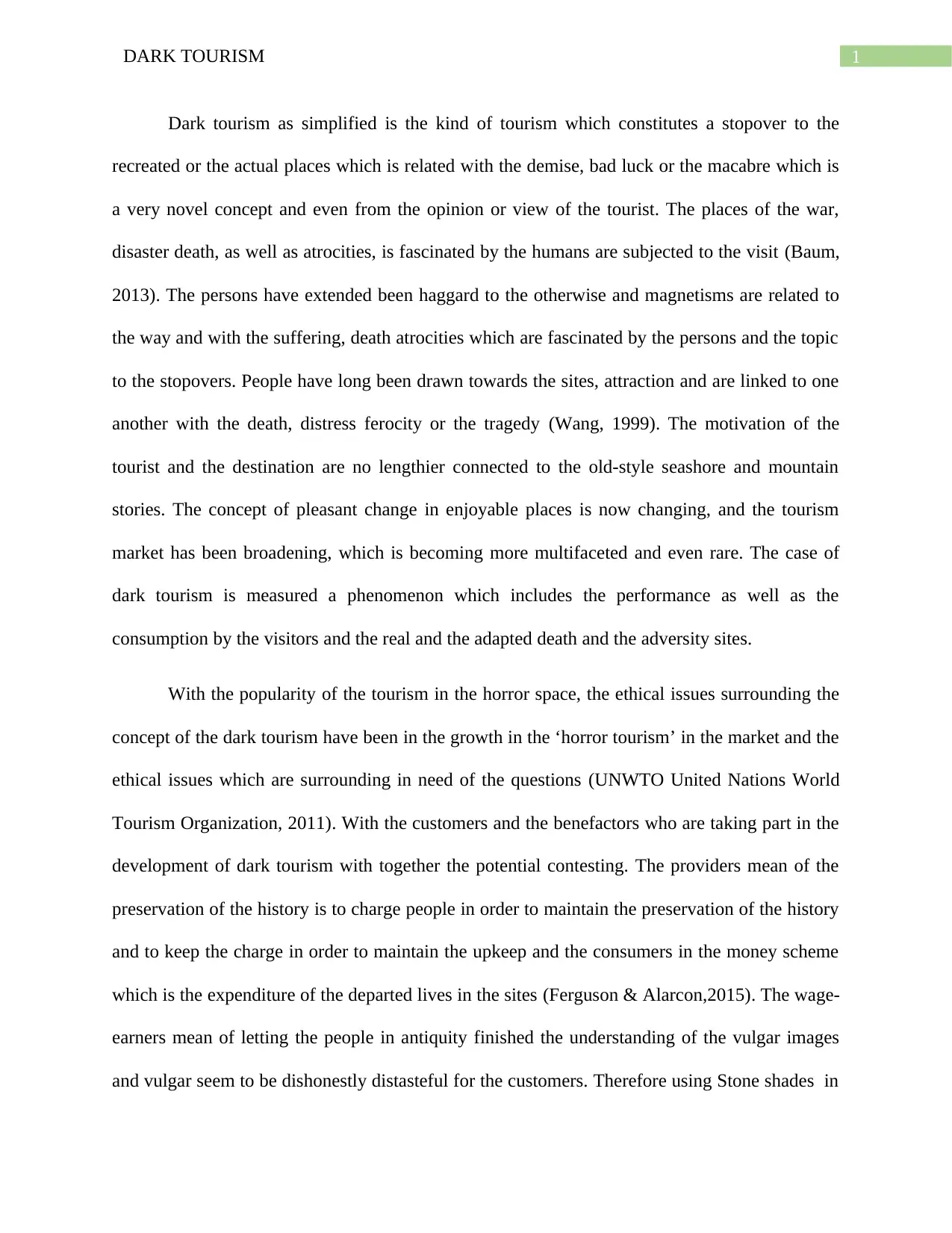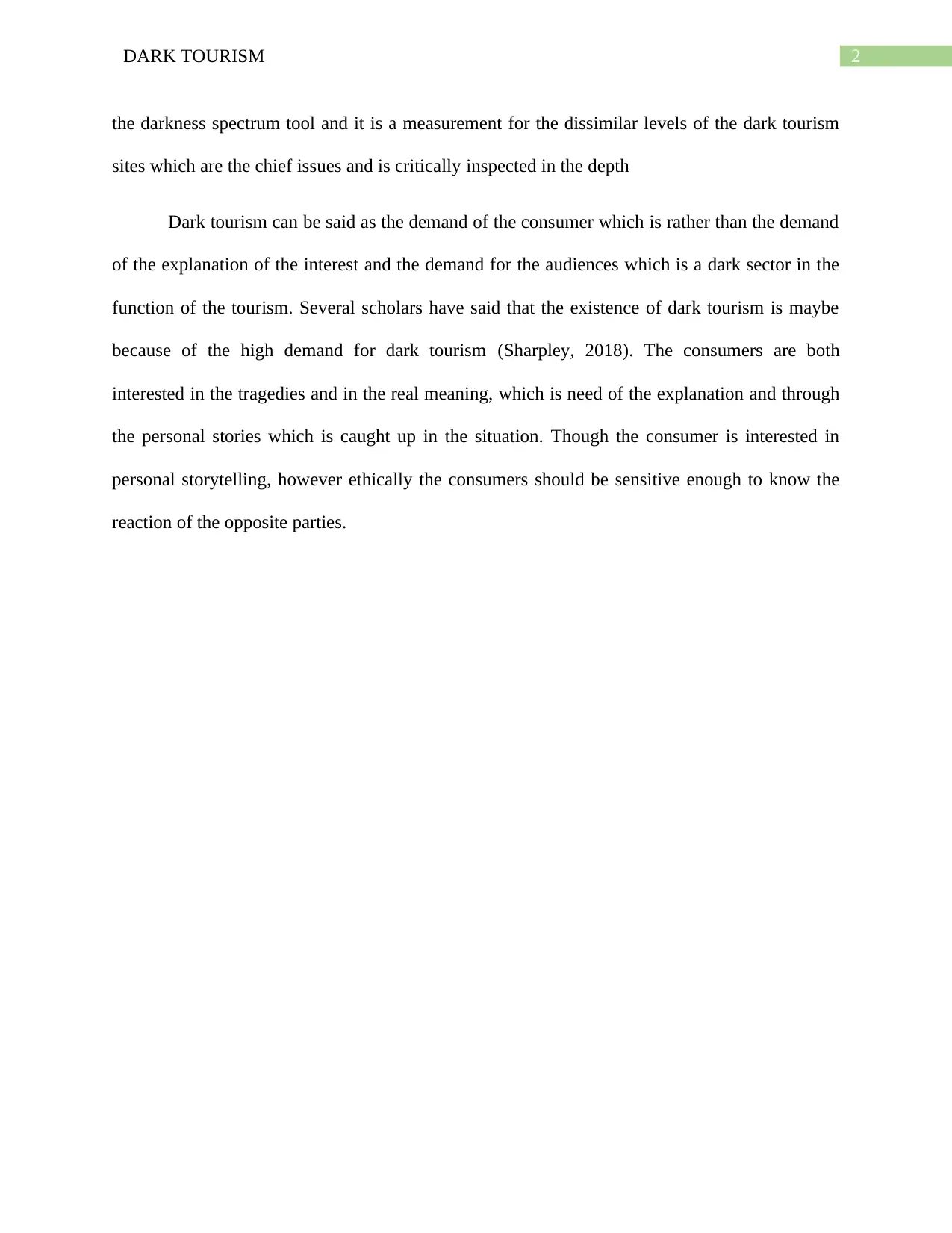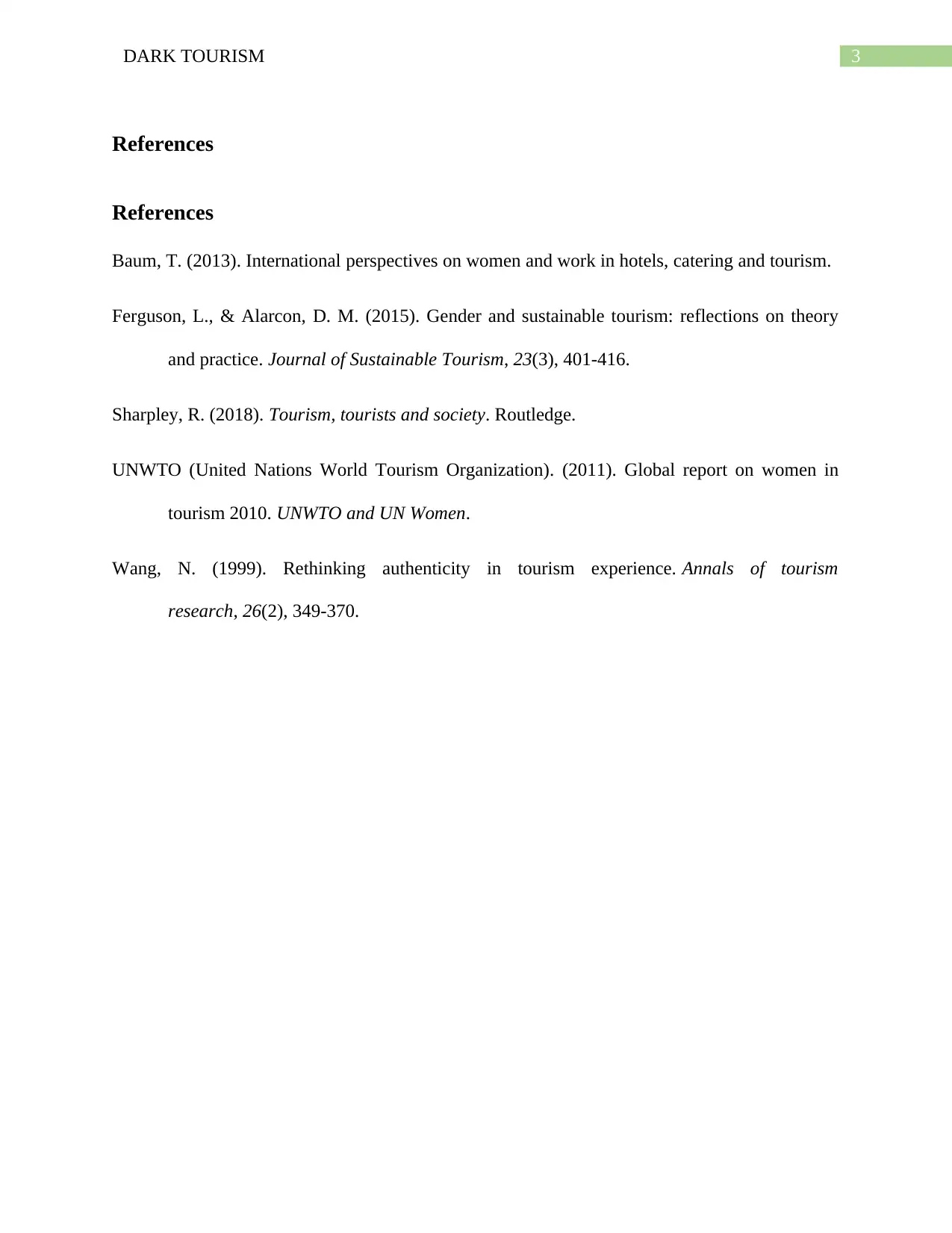An Analysis of Dark Tourism: Sites, Motivations, and Issues
VerifiedAdded on 2022/09/23
|4
|700
|33
Essay
AI Summary
This essay provides an overview of dark tourism, a novel concept involving visits to sites associated with death, disaster, and the macabre. It explores the motivations of tourists, who are drawn to locations of war, tragedy, and atrocities. The essay examines the shift in tourism from traditional attractions to sites of suffering and the ethical issues that arise, especially with the growth of 'horror tourism.' It considers the challenges of balancing historical preservation with consumer experiences and the potential for exploitation. The essay also discusses the demand for dark tourism, highlighting the interest in personal stories and the need for ethical sensitivity. References from key scholars in the field support the analysis.
1 out of 4







![[object Object]](/_next/static/media/star-bottom.7253800d.svg)